“The fact a play as relevant as Jitney is not known outside of the US is criminal”: An interview with Sule Rimi on starring in August Wilson’s Jitney at the Old Vic
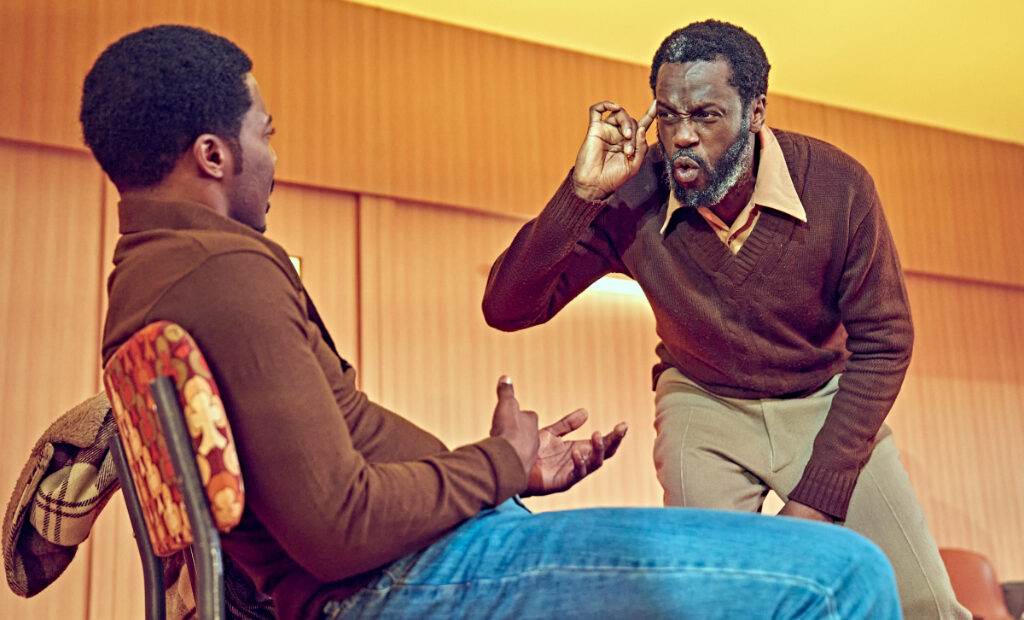
August Wilson’s Jitney returns to the London stage after 20 years. Best known for Ma Rainey’s Black Bottom and Fences, which were adapted for the screen by Denzel Washington, Jitney is one of the lesser-known works of the esteemed author. Actor Sule Rimi is no stranger to the Old Vic and returns to the stage once again portraying Turnbo. The actor took time out of rehearsals to chat with us about the play, Wilson’s legacy and what audiences can expect.
Sule, thank you so much for taking the time to speak with The Upcoming. You’ve performed at the Old Vic before in Arthur Miller’s The American Clock and All My Sons. How is it to be back and gearing up to appear on stage at the venue once again?
Very exciting. The opportunity to work in general is a blessing – but getting the opportunity to work at such iconic institutions like the Old Vic is a luxury which few of us are afforded. It’s a wonderful feeling, not just to be able to come back to such reputable theatres, but also to bring plays of this quality and this relevance to the time we’re in.
Is Jitney a play you were familiar with before taking on this role?
No – not at all. Interestingly, it was the first play Wilson wrote in his American Century Cycle (a ten-play cycle by Wilson set in Pittsburgh). It’s the oldest out of all of them, but it was the last to be recognised on Broadway. It’s the one he was cutting his teeth with. When I read the play, it didn’t immediately jump off the page at me, but once I heard the other actors in the cast giving their interpretation, all of a sudden, I got it. All the themes around gentrification, family and the grudges in the play suddenly became something I could connect to. That’s the beauty of Wilson’s writing. Even if it’s something that isn’t in your world, there is still a universality to his work.
What can you tell us about the play and what audiences can expect?
Jitney is set in the 70s, in the Pittsburgh Hill District in Pennsylvania. It takes place within an unlicensed taxi company, which provides a service for the community because it goes where regular taxis won’t. It’s part of a number of illegal institutions which have been set up within the area for similar reasons. Within the office, you have five drivers, four of whom work there under the owner, Becker, who is very much a father figure. In part, it’s about this group of black men communicating and divulging their emotions to each other. One is an alcoholic, two are war veterans, one from Korea and another just back from Vietnam… With all the complications in their lives, the Jitney cab office seems to be a hub where they come together and exist as a community.
Wilson is a master of character study with his works exploring, among other things, human trauma and vulnerabilities, as well as race relations and discrimination. What do you think it is that makes Wilson’s work so powerful and enduring?
The themes within Jitney – and across Wilson’s entire canon – are definitely powerful. Human nature doesn’t really change. His work is timeless in the sense that people will always share characteristics, no matter what point of human history you go back to. One of the play’s themes is displacement and when you look at the gentrification described in Jitney, you can see how it disrupts communities. People that come in from outside the community to exploit it don’t really care about the human cost of these “developments”. They justify it by saying they are improving the area but don’t really consider the human cost. All you need to do is look around London, New York or even Nigeria. I remember growing up and the slums being cleared out and these small shanty towns being uprooted by the government because they’d decided this was going to be a new development area. The displacement of people – and pushing out communities from situations where they have been brought up – is something we are still seeing all over the world today.
You play Turnbo. Tell us about your character.
He’s a hot-headed, annoying type of character, who is tightly wound up and is a bit of a busy body. He’s always got his nose in other people’s business, and he’s got this almost undisclosed rivalry with Youngblood, who seems to represent everything that he wishes he was. Youngblood’s a guy who’s got a lovely partner, he’s just had a child and he’s aspiring to get out of working in the Jitney station, to move away from this community and find something better. Turnbo on the other hand seems to be stuck as a person who just gets on everyone’s nerves and sticks his nose where it isn’t wanted.
Can you share anything about the rehearsal process? As an actor do you have much autonomy in your approach to portraying a character? How much of your own life experience do you draw on?
Wilson’s work is either a great study of people or he is fantastic in terms of character psychology, because, whilst I don’t think I have a personal connection to Turnbo, I can understand him through my personal relationships. Turnbo is definitely based on someone I know. I have a friend, I think everyone does, who always keeps it real. Someone who always says it how it is. Everyone needs a friend like that; someone who will tell you the truth, no matter what. I will also always, always shout from the rooftops about the value of having a director who knows what they want from a character. I don’t always know, so I really benefit from the guiding hand of a director like Tinuke (Craig), who knows what they want.
It’s been over 20 years since Jitney was last performed in London. Has this had any bearing at all on how you and the company have approached the play?
Jitney is not one of Wilson’s more popular plays, outside of America anyway. I don’t know if the time taken for it to come back is going to be any different to bringing it back in five years or ten years. It’ll always have relevance. I’m not hugely politically articulate outside of work, so what I like to do is try and tell stories that teach people about the past, present and future – and the cyclical nature of gentrification, for example. I like to be part of the stories that are put on in institutions like the Old Vic, where they can reach a wider audience. That way, I feel like I have some sort of way of saying “these are my beliefs and ideals.” Without a medium like this, they’d probably be swept under the carpet.
Denzel Washington is championing all ten of the plays in Wilson’s Cycle. Why now? Do you think there is a fear these plays are disappearing?
Yes, absolutely. The stories Wilson writes happen over and over. They help us spot patterns because they have been happening since time began – if we don’t save these plays and show them to future generations, how will we learn from our mistakes? I heard that Inua Ellams’s reworking of Chekov’s Three Sisters has just been included in the school curriculum. The original story is set in Russia, but Ellams’s version takes place during the Nigerian Civil War, which was a fight for independence. These are stories people don’t realise exist. Plays like Jitney and Three Sisters have so much detail that without plays like these, people would never know what really happened. It’s essential we see a revival because August Wilson is one of the greatest writers in the English-speaking world. The fact a play as relevant as Jitney is not known outside of the US is criminal.
Could you see Jitney being adapted for the screen?
I think it’d make a fantastic film or miniseries. Each character is so rich, and their individual stories are so interesting. In an ideal world, the cab company would be the base where everybody comes, and then somehow you could follow all these characters outside of the play…. Now we’re talking about spinoffs… I’m just pitching a Turnbo spinoff!
When taking on a project, what do you look for? Is character the main draw for you or is it the story, subject matter and themes of a play?
There are a whole lot of factors, but the main thing I look for is to be challenged in something I’ve never done before. I’ve even done plays where I’ve had to sing or speak in a different language. So, something that will challenge me in terms of something I’ve never really done before.
You’ve worked extensively across stage, television and film. Do you have a preferred medium and how does your approach to acting change with each one?
When I was younger, I’d have said theatre. I preferred it and wanted to do it all the time – but because I spent so long with it, it was taking a toll on my body. But in terms of creating something and telling stories, I’d say theatre is my favourite medium… if you can improve my stamina to make it like it was when I was 20 then theatre all the way. That said, I would like to broaden my horizons. Going back to the idea of being challenged, I think I would like more experience in front of a camera because it’s a different style of acting.
Performing eight times a week for a month must take its toll. How do you cope with the demands and the pressure of delivering so many performances of the same play? Does each show usually feel different? Is the energy often determined by the audience?
Someone once told me to serve the play, not yourself. The aim should be to take what you’ve done in the rehearsal room and replicate parts of it every night. As an actor, I don’t know many fellow performers who don’t notice when a house is quieter than it was the night before. It’s not because you’re doing anything right or wrong, it’s just audiences often react as one. All you need is one person laughing and that sets everyone off. The problem comes when actors feed off the audience and if they’re not giving much back, some people can be thrown into all types of panic, which can lead to overcompensating. I’ve also seen actors undercompensate when an audience seems disengaged…
What’s next for you after Jitney?
After the Old Vic, we are touring this show – and then I’ll be going down the road to the National Theatre to be in Blues from an Alabama Sky directed by Lynette Lynton. It’s going to be incredible. Got some stuff coming out on TV as the year goes on as well, so will be eagerly waiting to see how that looks…
Finally, if you could sum up the play in a few words or a sentence, what would it be?
Timeless, black, heart-breaking, relevant.
Jonathan Marshall
Jitney, an Old Vic, Headlong and Leeds Playhouse co-production, is at the Old Vic from 9th June to 9th July 2022 before touring. For further information or to book visit the theatre’s website here.
Watch the trailer for the Jitney here:

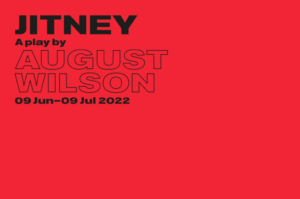
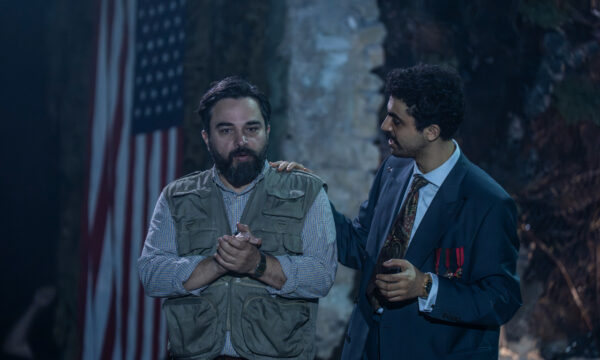
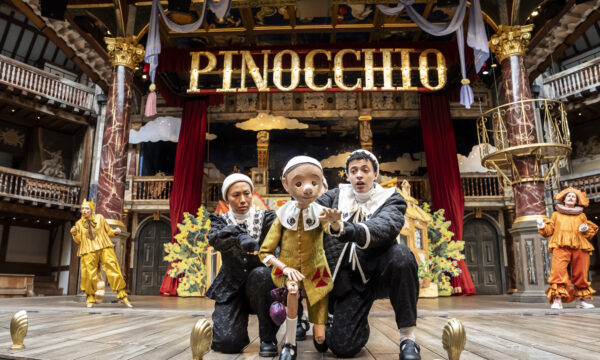
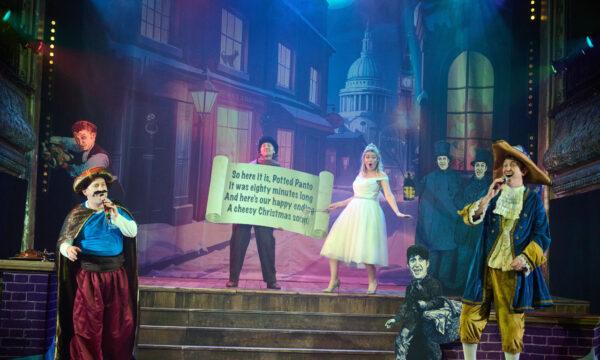

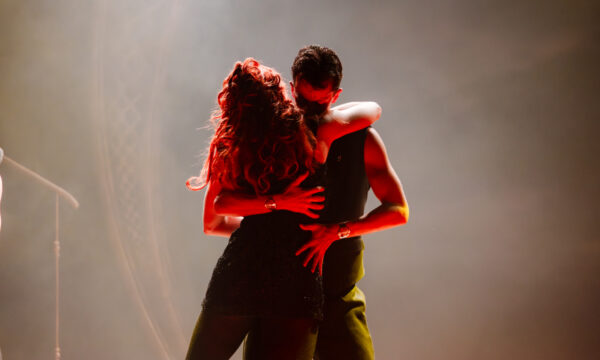
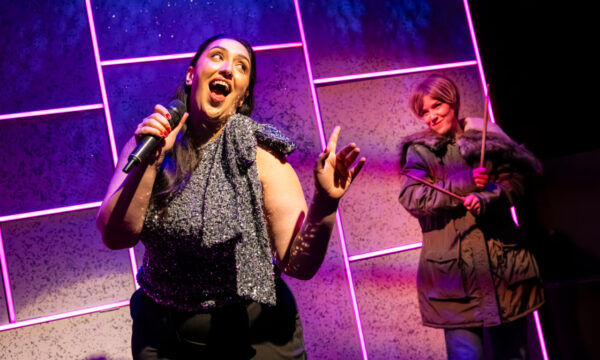
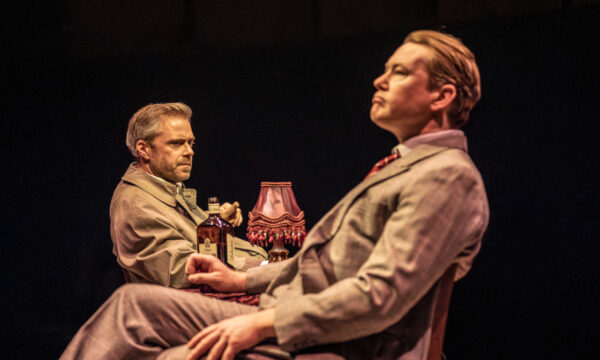
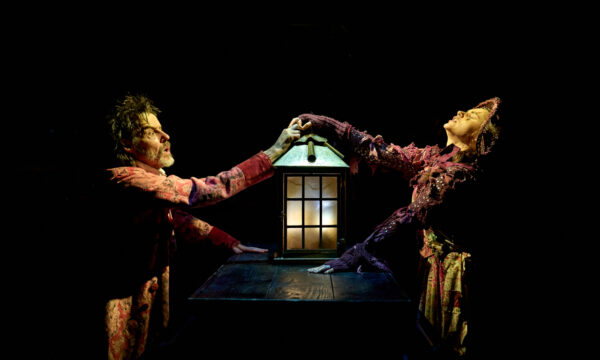
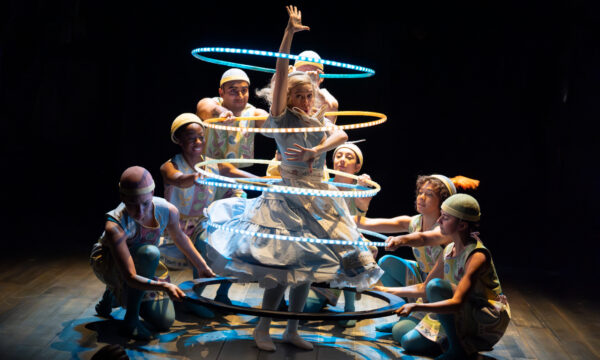















Facebook
Twitter
Instagram
YouTube
RSS